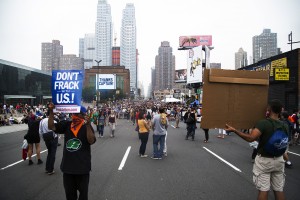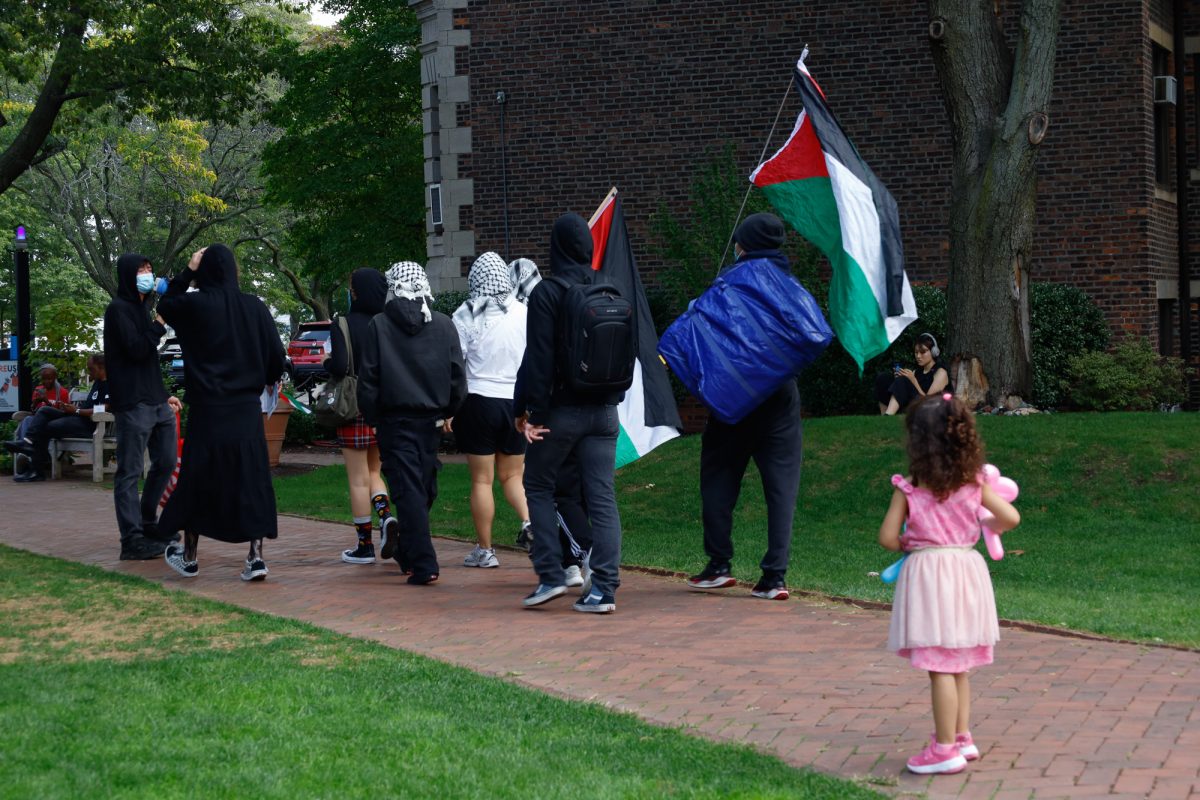
In collaboration with sustainability organizations and members of the Boston community, the City has begun to update its Climate Action Plan to address climate change and decrease greenhouse gas emissions.
Established by an executive order in 2007, the CAP outlines how the City will realize its goals of reducing greenhouse gas emissions in Boston 25 percent by 2020 and 80 percent by 2050. The CAP largely focuses on projects concerning building, transportation, energy consumption and waste reduction.
Greenovate Boston, a city-sponsored sustainability organization, updates the plan every three years and will release the revised CAP by December, said Leah Bamberger, the organization’s sustainability strategist.
“We’re at a crucial moment in history where if we don’t start to turn around, global emissions will reach a point in the next five to 10 years when humans will have a hard time adapting to climate change,” Bamberger said.
Since the process to update the CAP began in October 2013, the organization has created an online platform, Engage Greenovate Boston, through which citizens can post suggestions on revising the CAP until the public comment period concludes in November, Bamberger said.
“One of the outcomes of this plan will be that we continue these conversations and keep people engaged,” she said. “… We want to keep … lines of communication open, even after the plan is completed.”
The City has already reduced its greenhouse emissions by 15 percent since 2005 as a result of many fuel plants turning to natural gas as opposed to coal, Bamberger said.
Boston University’s Sustainability@BU has also developed a university-level Climate Action Plan, which outlines strategies to shrink BU’s environmental footprint by reducing energy consumption, burning cleaner fuels and utilizing renewable energy.
“The greening of Boston University’s operations is first and foremost on our list,” said the organization’s Outreach Coordinator Lisa Tornatore. “Since 2006, we have reduced greenhouse gas emissions by 21 percent through 2013. The electrical grid is moving toward more renewable energy sourcing, and we’ve converted our fuel to cleaner burning natural gas. These have reduced our energy consumption overall by 5 percent.”
Sustainability Director Dennis Carlberg said BU is helping to implement the City’s CAP through the Mayor’s Green Ribbon Commission, a group of community leaders that develops strategies to fight climate change.
“It’s important for BU to be a big player in the city’s Climate Action Plan,” Carlberg said. “… Our goals match the City’s goal to reduce greenhouse gas emission by 25 percent by 2020 from a 2006 baseline, and we are on track to meet those goals.”
Carlberg said the mayor has raised the bar for the city to move toward greenhouse gas reduction by establishing the Carbon Cup, a pledge to go above and beyond the city’s emissions goals.
“We were one of four recipients this year,” he said. “It involves reducing greenhouse emissions by 35 percent for one million square feet and pledging to reduce emissions by 35 percent for a total of five million square feet by 2020.”
Other recipients include Massachusetts General Hospital, Brigham and Women’s Hospital and Harvard University.
President of student climate advocacy group DivestBU Claire Richer, who protested in the Sept. 21 People’s Climate March in New York City, commended Sustainability@BU and Greenovate Boston’s efforts to combat climate change.
“It’s fabulous that they’re doing the Climate Action Plan for the city and at BU,” Richer said. “It’s what we need to do. The federal government has been awful at any sort of climate change policy whatsoever, but states and cities have been leading the charge, and one of the cities that is in the forefront is Boston.”


















































































































